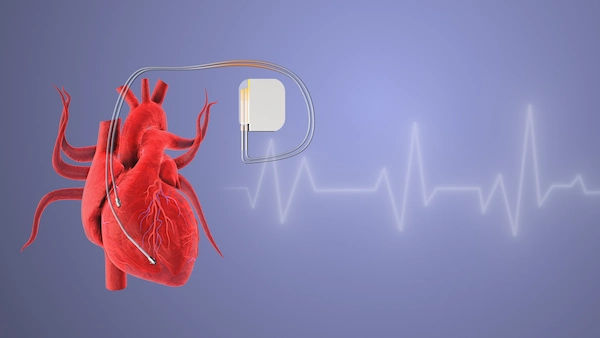- male
- 50 Years
- 07/02/2025
I've been having this pain on the left side of my chest and it's also in the inside part of my left shoulder, going to the back as well. It's weird because it's not the whole chest, just specific points. Sometimes the pain even jumps to my right side for a few seconds. I've been keeping an eye on my blood pressure and it's been 80120. Should I be worried about this or is it something that will pass on its own?
Answered by 1 Apollo Doctors
Based on your description of chest pain localized to specific points and radiating to the back, it is important to rule out any cardiac issues. However, given your age and blood pressure reading, it is less likely to be related to the heart. This type of pain could be musculoskeletal in nature, such as muscle strain or inflammation. I recommend taking over-the-counter pain relief medication such as Acetaminophen 500mg as needed for pain relief. Additionally, applying a warm compress to the affected areas and practicing gentle stretching exercises may help alleviate the discomfort. If the pain persists or worsens, it is advisable to consult a healthcare professional for further evaluation and management.
Dr. Anshul Suggests...
Consult a Cardiologist
Answered 04/07/2025
0
0

More Cardiology Health Queries
View allI'm really worried because my dad's having some mild chest pain. The doctor suggested an X-ray and then mentioned a CT-guided FNAC, but we're stuck since there aren't any clinics nearby that offer this procedure. On top of that, we're not in a strong financial position. Can you guide me on what we should do next? I'm feeling pretty lost right now.
go to any near by government district hospital, there all this facilities will be available
Answered by 1 Apollo Doctors
I'm dealing with both mitral and aortic valve stenosis, plus some leakage, and I'm really hoping to avoid surgery if that's possible. Is there anything that can help me steer clear of needing valve replacement surgery?
Mitral valve stenosis and aortic valve leakage can be managed with medication to help control symptoms and slow down the progression of the condition. For mitral valve stenosis, you can take medications such as diuretics to reduce fluid buildup, beta-blockers to control heart rate, and blood thinners to prevent blood clots. For aortic valve leakage, medications like ACE inhibitors or ARBs can help reduce strain on the heart and improve symptoms. It is important to regularly monitor your condition with your healthcare provider and follow their recommendations for medication dosage and frequency.
Answered by 1 Apollo Doctors
I'm 20 years old and I've been diagnosed with sinus tachycardia. I also have an overactive thyroid, and I've been told my heart's right ventricle is a little bigger than the left. Could all of this be a serious health risk?
Sinus tachycardia in the setting of an overactive thyroid can sometimes lead to complications, especially if left untreated. The enlarged right ventricle may be a result of the increased workload on the heart due to the tachycardia. It is important to manage both the thyroid condition and the tachycardia to prevent further complications. Medications such as Propranolol can be used to help control the heart rate and symptoms. Regular monitoring by a healthcare provider is essential to ensure proper management of your condition.
Answered by 1 Apollo Doctors
Disclaimer: Answers on Apollo 247 are not intended to replace your doctor advice. Always seek help of a professional doctor in case of an medical emergency or ailment.





_2.webp)